|
In the autumn of 2015, I hit a major crossroad in my life. I was in the fall semester of my senior year at The Catholic University of America aspiring to be a missionary for at least a year of service after graduation. In the midst of many applications, however, something within me was not completely settled. What was this strange complexity I experienced? I knew well enough what I wanted to do, yet at the same time, the thought of doing missionary work did not satisfy me in terms of who I knew God wanted me to become. The honest truth is that I was avoiding a religious vocation I had felt a deep calling to since the time I was 15. Besides the normal sacrifices that accompany entering religious life, there was a particular cross that hovered over my zealous missionary dreams: I would, for the most part, never see the fruits of my apostolic work. That is because I was being called to the contemplative cloistered life as a Discalced Carmelite nun. Vatican Council II’s document Venite Seorsum states that “by vivifying the entire Mystical Body by the fervor of their love, and by bolstering the various efforts of the apostolate, which are indeed nothing without charity, contemplatives raise the level of the spiritual life of the whole Church.” Since I truly did believe this, what was holding me back? Perhaps I anticipated the experience of contemplatives who, though joyfully faithful to their life of intercessory prayer and penance, nevertheless often feel the deprivation of never seeing the beautiful results of their undeterred missionary zeal: of one’s student having come to faith in Christ, of a nursing Sister who receives the gratitude of her well-loved patients, of the missionary who thrills in taking the Gospel to far-off lands. Such was the interior crucifixion of St. Thérèse, who felt in her heart the vocation of an apostle, missionary, and martyr, yet discovered in her Little Way the secret of serving God as He desires. St. John of the Cross teaches that one act of pure love is worth more in God’s sight than all other works put together. I slowly realized that being a missionary disciple is not about what I wanted to do for God, as it was about allowing Him to transform my heart so that I would be willing to love for Love’s sake alone. A few days before my First Vows, my confessor told me that my religious Profession would purify me of sin to the extent that I was after my baptism “because Profession is an act of perfect charity; it is loving surrender that God desires.” My Profession gave me the key to my vocation: it is God who is on mission in my heart, in and through me. In closing, I invite you to prayerfully reflect with these questions: do I place more emphasis on what I want to do for God, rather than on developing a love-relationship with Him? Do I know that my life of prayer must be both one of contemplative intimacy alone with God, as well as mission? Do I insist on seeing the fruits of my labors, and if not, grow discouraged? Have I ever considered or studied the cloistered contemplatives’ role in the Church? Let us remain united in prayer and in mission! To learn more about vocational discernment, please click here. To learn more about Carmelite spirituality, please click here.
1 Comment
When I was in seventh grade, about the age of 12, I decided to plan my life. I thought that I urgently needed to have an idea and start preparing for my future. I decided that I would be a missionary. I wanted to go to Africa and care for the children, especially those in most need. I always desired to adopt many children, including many with different disabilities. However, the missing piece of my life puzzle was that I didn’t even know what “being a missionary” really meant, and I had never thought about how my vocation would fit into my life either. As time went on, I realized that it was true that I loved to be around and work with children, and I had a great desire in my heart to go out to the whole world to help those in most need. However, I also discovered that God had a very special calling and plan for me, to use me as His instrument. As Mother Teresa said, “I am a little pencil in God’s hands. He does the thinking, He does the writing. He does everything and sometimes it’s hard because it is a broken pencil and He has to sharpen it a little more.” My name is Sister Mary Altar of Sacrifice, and I grew up in Kansas City, Kansas and went to Catholic school my whole life, from kindergarten through college. Thanks be to God, I was given a Catholic upbringing not only at school but also at home. Although I have a truly bad memory, I distinctly remember the different moments of the sacraments in my life, and I believe that it was the grace of the sacraments that opened my heart and led me to discover my religious and missionary vocation. Preparing for First Communion, I remember arguing with my mom about not wanting to wear the fancy white dress. I really disliked dresses because I was a tomboy who grew up with 3 older brothers. However, I understood the importance of the sacrament and was so excited to receive Jesus that I knew that I had to look my very best! It wasn’t until I was preparing for the sacrament of Confirmation that I began to take my Catholic faith seriously and hold it as my own. Our religion teacher told us “this is the moment (Confirmation) that you become an adult in the Church and have to take your faith as your own, so you must decide what you will do with it!” After that, I continually got more involved in the Church throughout high school by joining the youth group, aiding with junior high youth group, lectoring, being a Eucharistic Minister, leading retreats, frequenting the sacraments of confession and communion, etc. I also had the opportunity to do a 2-week mission trip to Peru, which confirmed my early desire to do mission work abroad. The experience of leaving all behind to go serve another was exciting and invigorating. I could concretely see that these people materially were poorer than I, but to see the richness of the treasure of their faith was enlightening. Finally, the time came for me to decide which college I would go to. I decided instead that I would do a gap year of service in another country, but my parents had other plans for me, so my “missionary adventure” was put on hold. Thanks be to God, I decided to go to Benedictine College, where I fell even more in love with Jesus and my Catholic faith, discovered my religious vocation, and finished my degrees in Elementary and Special Education. A month after graduation, I entered the convent in Washington D.C. with the Servants of the Lord and the Virgin of Matara, a missionary order founded in Argentina and currently in over 40 countries. When I visited them for the first time during college, there was a moment of actual grace that I understood this is where God was calling me to fulfill my vocation, and here, He would fulfill all the desires of my heart. I could see the puzzle pieces all fit perfectly together. Now, I am currently a missionary in Papua New Guinea in Oceania and have been here for just over a year. My main apostolate (or missionary work) is in the Primary School of our parish, teaching and working to bring a higher level of integral education to our students. Since I have entered religious life, every day has been a “missionary adventure.” However, being a missionary doesn’t just mean going to another country. Through our Baptism, we have been called to follow Jesus and sent to be missionaries to the world. The first step is to evangelize ourselves. We must look at our life and ask, “am I truly living the Gospel in my daily life and following Jesus in everything I think, say, and do?” Then, we must complete Christ’s mandate to love our neighbors and bring the Gospel to those closest to us. Sometimes, this is even more challenging than leaving our own family and country to serve someone. We must learn to be missionaries in our daily lives and pray and discern to see where and how God is calling us to fulfill that mission. Some have a special calling to give their whole lives as priests or religious to do this work! In addition, God calls some—priests, religious, and laity—to be missionaries abroad. However, we, as Catholics, are all called to be missionaries. As St. Catherine of Siena said, “If you are who you were meant to be, you will set the world on fire!” So, I invite you to pray for the missions and all missionaries in the world in a special way during this month of missions, but also I invite you to take some time to listen and pray about how God is calling you to be a missionary in your life. For more resources on Vocational Discernment, please click here. AuthorSister Mary Altar of Sacrifice serves as a religious missionary in the Diocese of Vanimo, Papua New Guinea Missionaries around the world were excited on October 22, 2017 when Pope Francis called for an Extraordinary Missionary Month in October 2019. The fruit of that month lacks luster, but the seeds are heavy with promise. Some of us were grieved by the lack of attention given to mission, hoping that the Church would give it more time and energy. Mission always leads to a personal relationship with Jesus Christ. The beauty and power of mission is so often seen in the lives of the saints. Missionaries themselves know they need to expand and deepen their own human, spiritual, intellectual and pastoral formation in order to address the hopes and dreams, the griefs and anxieties of every human being. We hoped the people of God would be generous with their spiritual and financial support of mission. Considerable efforts were made by Mission Directors from around the country to lift-up mission within the local church. There were some wonderful celebrations – remembering the missionary roots of the diocese, sharing the missionary story, promoting all the ways the faithful are engaged in mission. Regrettably, we are not always aware of how our faith stems from the faithful, and often heroic, efforts of missionaries who witness the Gospel in our hometown. Some learned new things about mission they did not know before, particularly the lives of saints who embodied the missionary spirit. Perhaps the story of Sr. Dorothy Stang, S.N.D de Namur, who taught catechism and justice to the indigenous people of the Amazon, and the stories of many others moved lay people to learn more about these missionaries and the importance of the Amazon for our common home. There were efforts to deepen and expand the formation of missionaries – a few conferences, some webinars. USCMA focused on reconciliation as an aspect of mission and explored the missionary task of reconciliation among those who suffer from racism in America and the spirituality needed to sustain the mission and ministry of reconciliation. Roger Schroeder defines mission as “proclaiming, serving, and witnessing to God’s reign of love, salvation and justice.” Sometimes “evangelization” replaces the word mission. Too often, evangelization is understood in very narrow terms – as the verbal proclamation of the Gospel. As Catholics, we know in our bones that words – even very good words expertly crafted and amazingly articulated – are insufficient. Words need integrity that flows from lives lived in service to others purely out of the love of God. As St. Francis is often quoted as saying, “preach always and, if necessary, use words.” Mission is evangelization embodied. Pope Francis said in Joy of the Gospel, “I am a mission.” Mission is rooted in the very heart of God. Anthony Gittins, a leading missiologist, said “Mission is God’s job description, it is what he does and who he is.” Jesus is the preeminent missionary. He was sent by the Father to bring love, salvation, and justice to the world. Jesus continues this mission – everyday – through those of us who are baptized and sent into the world. The missionary goes beyond themselves, steps outside their comfort zone, crosses some type of border, and risks a personal encounter with another human being in the name of God’s inexhaustible love. There are wonderful signs of hope that the people of God are beginning to move from maintenance to mission. Parishes around the country are creating partnerships to build bridges and relationships of solidarity with people in other cities, states, and countries. Dioceses are forming partnerships with other dioceses. Catholic high school students are cultivating relationships with other students around the world through video technology and social media. Bishop Barron, at the recent gathering of the US Bishops, stressed the need for the church to reach out to the growing number of the “disaffiliated;” people who do not affiliate with any religion. Two of his three points speak directly to mission – engage people in the work of justice and create parishes to be “missionary societies.” What if every parish had a mission commission or team that would organize the missionary activities of the parish? Some parishes have a neighborhood mission to the homeless, regular mission trips to the poor in Appalachia, or a long-standing partnership with a parish in another country. Not all parishes can be completely dedicated to mission, but every parish can, in some way, be a missionary society. All are called to be missionary disciples, but not all can be missionaries. A missionary is a ministry of the Church – just like a catechist. Most of us have had some type of missionary experience where we reached out beyond ourselves, for the good of another, with only their good, their blessing, as our goal. All of us can come together, share our missionary experiences, and discern where Jesus is sending us. We are the seeds of the Extraordinary Month of Mission. We who heard Jesus say to us personally, “The Father has sent me, now I send you.”
For Americans, the annual observance of the Fourth of July celebrates the independence of the United States. Our national story is made up of the varied lives and unique experiences of countless peoples who nonetheless share in seeking “life, liberty, and the pursuit of happiness.” Each of these people is following his or her own American Dream, the achievement of which requires hard work, fortitude, and faith. As we celebrate and reflect upon our personal freedoms— long fought for and subsequently defended— we also acknowledge those peoples whose rights are continually imperiled or at risk of being curtailed by injustice. The United States by no means has a spotless record in establishing civil rights, but those efforts have raised up incredible heroes who sought to make the American Dream more accessible peacefully and justly. As Catholics, we especially thank God for His blessings on this land and for the preservation of our rights to bear witness to Him publicly as Americans.
Thanks to the efforts of French and Spanish missionaries in the 16th and 17th centuries, Catholicism began to take root among the indigenous peoples of what would become the United States. As the fledgling country wouldn’t have an installed bishop until 1789, the American Church continued to grow during the first half of the 19th century thanks to the influx of Irish and German immigrants seeking the religious toleration which was becoming less and less abundant in Europe. Protestants were critical of these arrivals, declaring it was not possible to be a good American and Catholic at the same time (partly due to false beliefs spread about allegiance to the Roman pope). Thanks to the determination of these immigrants, and the grace of the Holy Spirit, by 1850 Roman Catholicism was the largest denomination in the United States. Despite the political and cultural persecution American Catholics experienced, the ministries and loving charity of certain clergy and religious ensured that the needs of their fellow citizens were met. Figures like Mother Cabrini and Mother Seton founded religious communities that took care of the poor whom society all too often ignored. Mothers Drexel and Duchesne cared for Native Americans (as did Kateri Tekakwitha), African Americans, and women as they evangelized with the missionary spirit. Fr. Michael McGivney began a member-benefit society (which would become the Knights of Columbus) to care for the widows and families of Catholic male breadwinners who lost their lives. Isolated from the public square, the Catholics of this country nevertheless found a niche caring for other outcasts through a public witness that expressed faith as the catalyst for action. Doing so forced many observers to cease their suspicions and prejudices and helped normalize Catholicism in America. The examples of faithful religious continued to inspire Catholics in all walks of life to live out their faith freely. In recognition of their faithful witness of the Gospel, many of these brave citizens are now hailed as saints for universal veneration in the Church. Today, secularism and the misrepresentation of civil rights threaten the very foundation of the society which Catholics have indisputably helped shape. Legal challenges are filed against religious symbols, schools, churches, and charities, supposedly for discriminatory actions or the preservation of the separation of church and state. American Catholics are often torn between publicly defending these institutions and their work or avoiding antagonization for speaking out. Nonetheless, the Church continues to meet the needs of the poor and the outcast in the same spirit of welcome the poet Emma Lazarus immortalized in the words of “The New Colossus,” which hangs in the pedestal of the Statue of Liberty: “Keep, ancient lands, your storied pomp!” cries she With silent lips. “Give me your tired, your poor, Your huddled masses yearning to breathe free, The wretched refuse of your teeming shore. Send these, the homeless, tempest-tost to me, I lift my lamp beside the golden door!” As Americans, we thank God for the gift of religious liberty and for those who continuously defend it. As Catholics, we pray for our leaders to be guided by the Holy Spirit to pursue justice and for those abroad who are still struggling for the basic rights and freedoms we enjoy. There is no shortage of opportunities around us to live and act as the saints before us. The American story continues with each of us; perhaps its future chapters will tell of the great love and commitment of countless citizens who welcomed the refugee, defended the unborn, cared for the disabled, accompanied the lonely and the imprisoned, fed the hungry, clothed the naked, promoted charity, and honored the dead. We have much to celebrate on July Fourth; may God always guide our nation in the ways of liberty and justice for all. For the average modern-day Catholic, one’s familiarity with St. Barnabas probably extends as far as knowing that he was a companion of St. Paul during Paul’s early missionary work. But when I delved deeper into the Acts of the Apostles to learn more about Barnabas, I was surprised to see just how influential he was in the early days of the Church.
He first appears in the Acts of the Apostles 4:36: “Joseph, also named by the apostles Barnabas” sells a piece of his property and donates the money for the Apostles to use. He next appears in Chapter 9, when he takes charge of the newly-converted Paul and introduces him to the twelve Apostles, and later, he brings Paul into the missionary work for the growing, Jewish-and-Gentile-based Christian community at Antioch (in modern-day Turkey). Chapters 13 and 14 could be appropriately nicknamed “The Adventures of Paul & Barnabas,” for they include: an encounter with a false prophet (Acts 13:6-12), having their teachings embraced by Gentiles and just as thoroughly rejected by Jews (Acts 13:44-52), one near-stoning and one nearly-fatal stoning (Acts 14:5-6 and 14:19-20, respectively), and performing a miracle only to be mistaken for incarnations of the Greek gods Zeus and Hermes (Acts 14:8-14). And yet, the Holy Spirit compelled them onward! The next chapters recount more of Sts. Paul and Barnabas’s evangelizing work together and then focus on St. Paul after he and Barnabas went separate ways. Personally, I had never known that St. Barnabas—whom I had often envisioned as a sort of sidekick to St. Paul’s evangelizing heroics during his early years as a missionary—was actually the man indirectly responsible for Paul’s later renown. It can be difficult to believe that someone has truly changed, and even more difficult to advocate publicly for that person before he has had a chance to ‘prove himself’—and yet that is what Barnabas did. Would Paul ever have been accepted as a ‘true’ Christian if the well-regarded Barnabas had not been there to acknowledge Paul publicly and to put him in touch with the Apostles? How long might it have taken Paul to reach the path of the missionary if Barnabas had not sought him out specifically to assist the efforts in Antioch? In our modern, post-Christian society, there are many opportunities for us to be the Barnabas to someone else’s Paul. Perhaps it might mean asking for help from someone with a task that could ignite their zeal for the Lord and nurture their God-given talents. Perhaps we can see the potential for someone else’s faith to deepen and for the great things they could accomplish. Or perhaps the opportunities we encounter are chances to be a witness to the truth—even if that witness brings persecution, falls on deaf ears, or we must move on to other places, as Paul and Barnabas did. As we commemorate the feast of St. Barnabas, let us ask for his intercession in revealing to us how we can most effectively share the Gospel today and invite others into a life of meaningful discipleship. Question for Reflection: Has anyone ever advocated for you or have you ever been an advocate on someone’s behalf? What was this experience like? experience like? What is the best method of evangelization? In an era when 35% of young adults (ages 18-29) identify as having no religion at all, we as Christians ought to consider whether our approach to evangelization is working. Too often we think that if those outside the fold just heard the right arguments, if they just read--really read--the right things, they would see the capital “T” Truth. We press onto our non-religious friends blogs and books, podcasts and pamphlets, all with answers to the usual questions skeptics raise (What about evolution? What about violent extremism? Etc.) and we assume that they’ll suddenly just see the light and believe. It should be apparent by now that this approach doesn’t work. Imagine doing this in any other context. Paraphrasing an analogy from Bishop Robert Barron, let’s imagine that you are taking a group of seven-year-old boys out onto a baseball field for the first time. You say as the coach, “Now boys, today I’m going to teach you about the incredible game of baseball. It’s a game that you’ll love your whole life. It’s a beautiful game of strategy and strength, precision and unpredictability. Ready to get started? Good. For your first lesson in this game, I’m going to teach you the infield pop-fly rule. Now, yes, it’s a ticky-tacky rule, but it’s actually crucial and can make the difference in a big play. Now let’s go sit on that bench in the dugout and take a look at this little diagram I have here about what to do when you encounter this tricky little hit.” What seven-year-old walks away from that with a love for baseball? Rather, says Bishop Barron, you ought to introduce the little guy to the beauty of the game. Take him to the stadium and let him see the best of the best playing. Let him watch as the batter slams one to left field only to have the ball caught in a running dive by the outfielder—his whole body outstretched from head to toe, muscles straining in his neck, eyes up, glove out, lunging across the green as he just barely catches the ball with an audible thunk! Let the boy see the magic of the game unfold before him. When we allow a beautiful thing to be beautiful, it speaks for itself. There’s no need to come armed with arguments. The beautiful thing itself lays hold of our soul and draws us in. For the seven-year-old baseball player, he sees the beauty of the game, he desires to participate, and then once he himself is playing, he starts to learn the nuances of the rules and how the rules themselves are part of what makes the game beautiful. In time, the boy is so in love with the game and its rules that he is moved to share that love with others, to get them to see what he sees. Citing the 20th century theologian Hans Urs von Balthasar’s theology of aesthetics, Barron says that beauty claims the viewer, changes him, and then sends him on mission. Theologically, beauty is one aspect of the three properties of being called the Transcendentals – the True, the Good, and the Beautiful, all of which together lead us to God, who is Being itself. The trick, of course, is determining the order of our approach. When we start our mission of evangelization with truth we too often shut down dialogue with non-believers, who often find themselves enmeshed in a culture of moral relativism and self-made meaning – who are you to tell me what’s true? I agree, with Balthasar, Bishop Barron, and others, that we ought to flip the order around. Let the beauty of our Christian faith–whether it is displayed through our liturgy, our sacred art and music, our actions toward one another, or the radiant light of Christ shining through us–draw people in. Let them experience the beauty of the Faith so that they desire to participate in it, in however small a way at first. Consider this hypothetical scenario: A non-believer friend sees you act charitably toward someone who has made you suffer. He sees you forgive and put the wrong behind you. He is taken aback by your generosity. He thinks that he would like to be like that too. In time, he finds himself emulating you. In time, he begins to see that Christians as a people are not all hypocritical. In time, he begins to think that Church teaching might actually engender goodness in human beings in general, not just you. In time, he finds himself agreeing with the basic moral vision of Christianity, even if he rejects the faith itself. In time, he happens to hear Christ’s Sermon on the Mount and begins to wonder what it all means. In time, your beautiful action leads him home. As Christians, our love for Christ and our love for the Church sometimes make us blind to the sincerity of many skeptics. We dismiss their often earnest desire to do and be good merely because we’ve determined that they can’t do it without God. We feel like it’s our duty as Christians to steer them straight, bring them to the fold. Yet, the next time we consider jumping into the Facebook fray of endless arguments about religion and morals, let us instead refresh our screens, share something beautiful, and move on. Let us allow beauty to soften our hearts of stone and turn them to the sacred heart of Jesus. Question for reflection: Which of your interests and passions in life started with an experience of beauty? Who among us seems to need an experience of the beautiful and how can you be the one to give it to them? “Do we love the Church as our Mother, who helps us to grow as Christians?
And how do we go beyond ourselves in order to bring Christ to others?” -Pope Francis, General Audience, September 11, 2013 Stop for a moment and re-read again the two questions above. Reflect on how you would answer them. Pope Francis reminds us in his first encyclical, Lumen Fidei, that our growth as a Christian is not an individual act. “It is impossible to believe on our own. Faith is not simply an individual decision which takes place in the depths of the believer’s heart, nor a completely private relationship between the "I" of the believer and the divine "Thou", between an autonomous subject and God. By its very nature, faith is open to the "We" of the Church; it always takes place within her communion” (Lumen Fidei, 39). The Church is the place where we are nurtured by Christ through the community of faith, where we grow in Christ through the sacraments, and where we encounter Christ in those around us, especially in the poor and the suffering. We cannot remain in our comfort within the Church, though. We need to move outward to others and assist them in encountering Christ. Our growth as Christians is a life-long process. There is always more that we can learn, understand, and experience in faith, especially the teachings of our Church. Bringing Christ to others as an apostle or, as Pope Francis emphasizes, a missionary or missionary disciple*, makes a demand on us to know and live the faith. Being catechized does not simply mean knowing the faith, it means witnessing to it in our lives. On-going formation in the faith,being catechized, is a dynamic process that is for life! Our growth in faith is not simply our action alone, however, it is the work of Christ within us and the relationship that we have with him nurtured through prayer. Click here for our resources on catechesis and on prayer Fr. Frank Donio, S.A.C. is Director of the Catholic Apostolate Center. *The term “missionary disciple” is used throughout the “Concluding Document” of the Fifth General Conference of the Latin American and Caribbean Bishops’ Conferences held at the Shrine of Our Lady of Aparecida in Brazil. Cardinal Jorge Bergoglio (now Pope Francis) personally guided the development of the document. Click here to read it. Editor's Note: This post was originally published on September 24, 2013 |
Details
Archives
July 2024
Categories
All
|
About |
Media |
© COPYRIGHT 2024 | ALL RIGHTS RESERVED


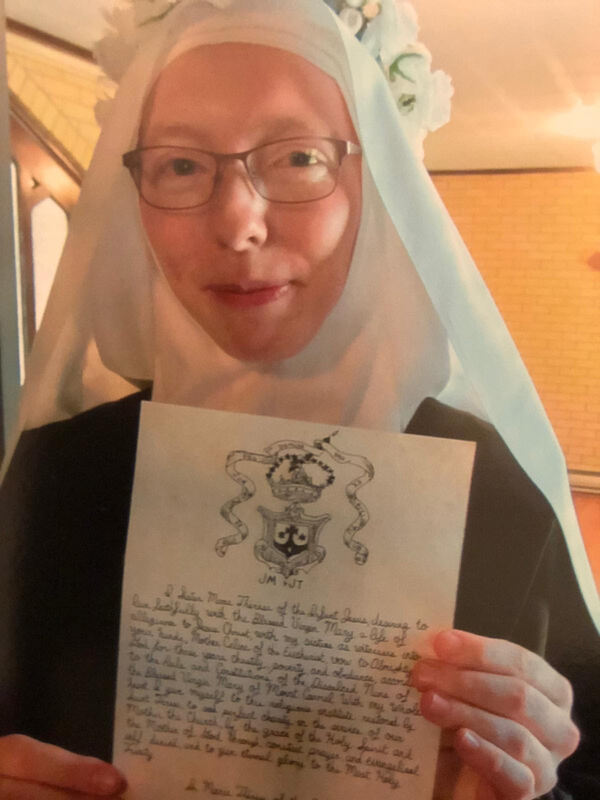
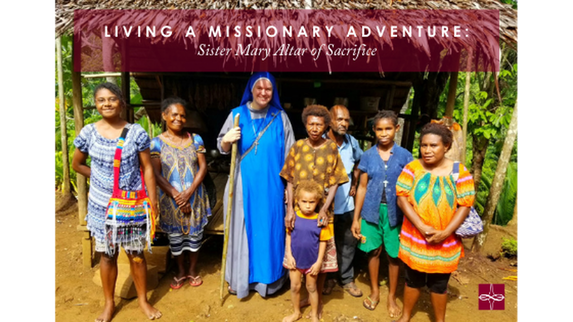
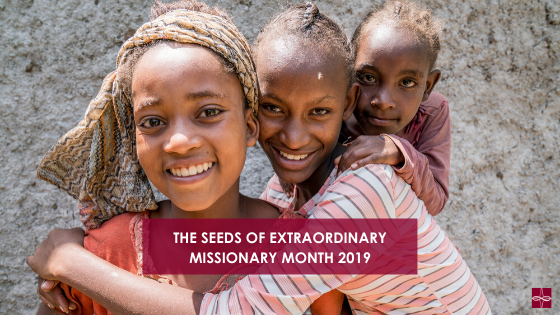

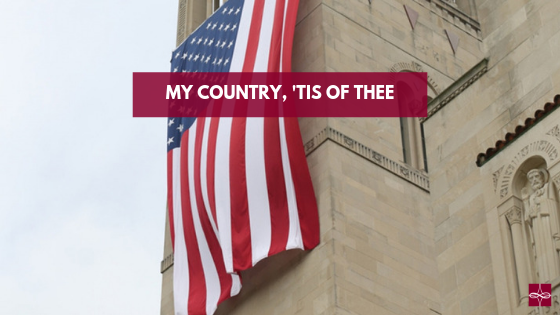

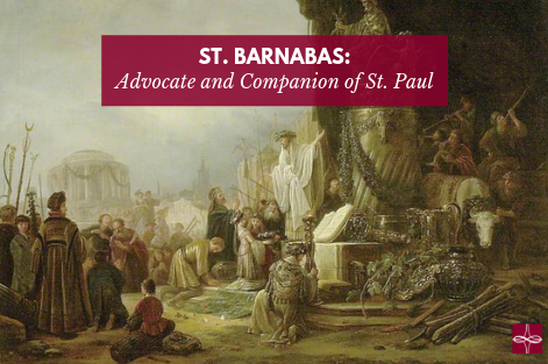



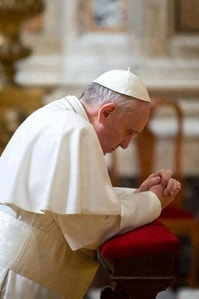
 RSS Feed
RSS Feed